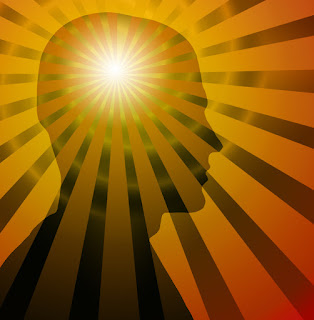The essence of Non-duality (Advaita Vedanta) by Atman Nityananda
There is only one absolute non-dual reality (without parts, form, time, space and cause). There nothing else beside That nondual reality. This nondual dual principal it is called Brahman and in relation with the human beings it is called Atman.
This Atman or Brahman is pure Being, pure light of Consciousness and pure Bliss. This nondual reality is what we really Are.
The identity of the apparently individual Consciousness (called Atman) with the absolute or Universal Consciousness (called Brahman) is clearly affirmed by the great sentences -Mahavakyas of Upanishads):‘Aham Brahmasmi’ (‘Brahman I am’), ‘Tat Tvam Asi’ (‘That you Are’), ‘Ayam Atma Brahma’ (‘Atman is Brahman’).
We are That reality doesn’t mean that we as an ego entity we are That nondual reality, but that We, as the apparently individual Consciousness are the absolute nondual Consciousness (the nondual reality).This non-dual reality, is self-existent, self-luminous (awareness itself and aware of itself), indestructible, changeless, immovable, without beginning and end, ever present, peaceful, blissful, free and complete. It is called also as Sat-Chit-Ananda (absolute Existence, absolute Consciousness and absolute Bliss).
The innate power of this nondual reality called Maya creates this multiple universe of innumerable forms and the Jivas (embodied souls, human beings).
Sattva, rajas and tamas are the fundamental powers (qualities or gunas in Sanskrit) by which Maya creates the universe and all forms. The nature of Maya and the nature of the nondual reality are incomprehensible, beyond description and mental concepts.
The universe created by Maya is a superimposition on That nondual reality which is unperceived by the senses, but fully experienced in a pure awaken sattvic mind. We are in essence this nondual reality. The apparently individual Consciousness We are, is identical with universal or absolute non-dual Consciousness.
The factor that creates the illusion of separation and duality is the ego and the rajas and tamas qualities that operate through the ego and the mind.
The lower rajasotamasic ego veils the non-dual reality and makes us identify with the instruments (body, prana, mind, intellect) and regard as our self the physical body and what there is in the body (vital energy, mind, intellect / prana, manas, buddhi).The lower rajasotamasic ego causes a mutual identification between the nondual reality or Consciousness and the instruments.
Due to this mutual identification, the qualities of the body, prana, mind and intellect are superimposed on the nondual reality and the ‘qualities’ of the non-dual reality are superimposed on the instruments.
So, when the body is hungry, we feel that We are hungry, when the body is tired, we feel that We are tired. Οn the contrary, although we as a body we are going to die, we feel that this body will never die because the deathlessness of our essential nature (the non-dual reality) is superimposed on the body.Similarly, the states of the mind are superimposed onto our essential non-dual nature and the opposite.
Due to this superimposition, we take the states of the mind as our states, thus we think, I am clever or stupid, I am miserable or happy and in the contrary we take the awareness, the bliss and the love of the Consciousness that belong to the mind (and the body as well), so we feel as a body mind entity, I am aware, I love, I am blissful.
Self-realization or liberation is the disidentification from the instruments, the realization that the nondual reality is our identity (what We really are) and the cessation of the illusory perception that we are different and separate from the nondual reality, created by the ego (i.e. the cessation of duality).
Liberation or Self-realization happens by the complete dissolution of the egoic mind and the ego itself and the equality of buddhi with the Consiousness due to continuous identification of the mind with That (by meditation or Self-enquiry /Vichara).
In the state of liberation, it is experienced, in all places and all circumstances, effortlessly and without a break the peace, bliss, plenitude and freedom eternal of oue essential nature.




